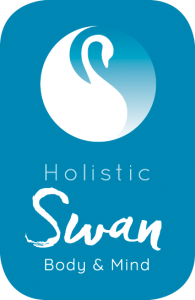NARM
NARM stands for Neuro Affective Relational Model, a powerful method within trauma therapy that focuses on healing developmental trauma. Developed by Dr. Laurence Heller, NARM combines insights from attachment theory, neuroscience, and body-oriented therapy.
Where Somatic Experiencing primarily works with shock and single trauma, NARM offers in-depth support for persistent patterns that have arisen from early disruptions in connection—both with yourself and with others.
How does NARM work in therapy?
During a NARM session, we explore how old, unconscious patterns still influence your daily life. Consider:
- Feelings of shame or inner emptiness
- Difficulty setting boundaries or making contact
- People-pleasing behavior or fear of showing your true self
Through targeted questions, body awareness, and relational attunement, NARM brings you back to a healthy connection with yourself, step by step. Without having to “dig” into old pain: the focus is on the NOW.
When is NARM helpful?
NARM is particularly effective for complaints that often stem from early childhood experiences, such as:
- Low self-confidence or lack of self-esteem
- (Chronic) shame or feelings of guilt
- Attachment issues and relationship patterns
- Emotional numbness or hypersensitivity
- Prolonged stress, burnout, or PTSD
- Trauma due to neglect or lack of connection in childhood
This form of trauma therapy offers space for deep healing, in a way that is both gentle and transformative.
What does a session look like?
We start by exploring what you would like to experience differently in your life. Instead of digging deep into your past, we focus on the here and now: What patterns do you experience? What do you keep running into? What would you like to feel or be able to do more?
We invite you to gently explore what is happening in your body, your emotions, and your thoughts. There is a strong focus on self-regulation: you will learn to recognize when you are building up tension or losing yourself in old survival strategies (such as pleasing others, withdrawing, or overcontrolling).
NARM is a body-oriented therapy, but not necessarily “physical” like massage, for example. It is about feeling more subtly: breathing, muscle tension, heart rate, inner movements. These physical signals help us understand and let go of old patterns.
An important aspect of NARM is that we work together in a safe, attuned therapeutic relationship. You will not be pushed or forced to feel anything; it is all about respecting your pace and your boundaries.
Unlike some other forms of therapy, NARM does not require you to delve deep into painful memories or relive trauma. Instead, we explore how old survival mechanisms still manifest themselves today—and how you can let them go to create more freedom and self-connection.
You don’t have to force or solve anything. NARM works from the belief that you are essentially whole — and that together we can create space to experience that wholeness again.





